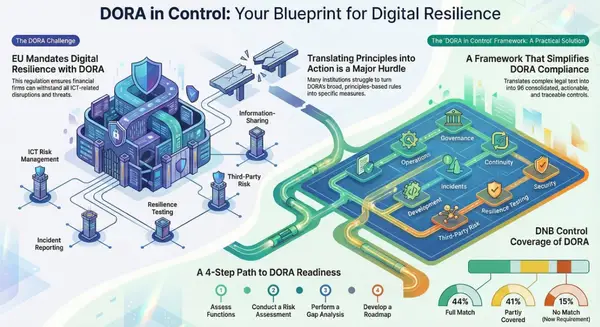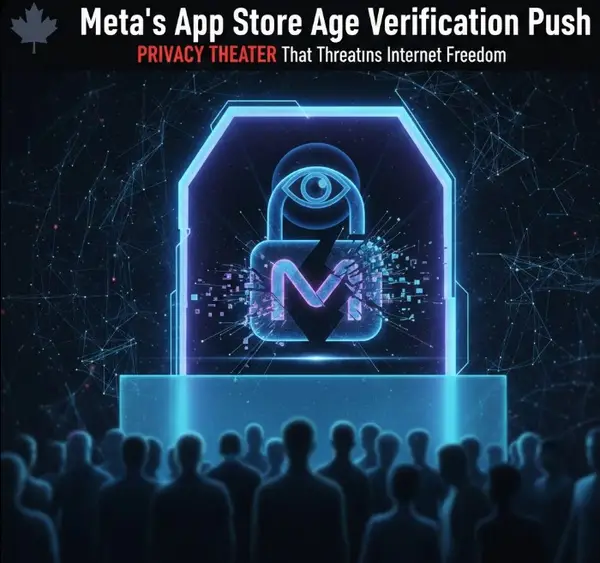The Decentralized Resistance: How Mississippi's Digital ID Law Met Its Match with Mastodon

When Mississippi's sweeping age verification law went into effect in August 2025, it exposed a fundamental tension between government surveillance and the decentralized web. While Bluesky chose to block all Mississippi users rather than comply with the invasive requirements, Mastodon took a different approach entirely—one that highlights the true power and principles of decentralized networks.
The Law That Sparked a Digital Exodus
Mississippi's HB 1126, dubbed the Walker Montgomery Protecting Children Online Act, requires all social media platforms to verify users' ages before allowing account creation and obtain parental consent for anyone under 18. The Supreme Court allowed the law to take effect in August 2025, despite Justice Brett Kavanaugh's concurrence noting the law is "likely unconstitutional".
The legislation's reach extends far beyond traditional social media, applying to any digital service that allows users to "socially interact with other users," create profiles, and "create or post content." This broad definition covers not just platforms like Facebook and Instagram but also message forums, YouTube-style video sites, and even neighborhood-focused platforms like Nextdoor.
The penalties are severe: up to $10,000 per user for non-compliance, creating existential pressure on platforms to either implement costly verification systems or abandon Mississippi users entirely.
Bluesky's Strategic Retreat
As we detailed in our previous analysis of Mississippi's Age Verification Law and the Bluesky Standoff, Bluesky made the difficult decision to geographically block all Mississippi IP addresses, citing the prohibitive costs of building verification systems and concerns about user privacy.
"Building the required verification systems, parental consent workflows, and compliance infrastructure would require significant resources that our small team is currently unable to spare," Bluesky explained in their blog post. The platform emphasized that the law would require them to track which users are children—something they don't do in other regions.
This response, while understandable from a business perspective, represented a traditional centralized approach: when faced with regulatory pressure, the platform made a unilateral decision affecting all users in a geographic region.
Mastodon's Fundamentally Different Response
Mastodon's reaction revealed the stark difference between merely distributed platforms and truly decentralized ones. The nonprofit organization behind Mastodon explained that it simply doesn't have the technical means to comply with age verification laws because the software doesn't support centralized user tracking or verification.
More importantly, Mastodon's CEO Eugen Rochko argued that "there is nobody that can decide for the fediverse to block Mississippi," highlighting the network's truly decentralized nature.
The Technical Reality of Decentralization
Mastodon's software doesn't retain age-verification data even when server administrators implement age checks. The Mastodon 4.4 release in July 2025 added the ability for administrators to specify minimum ages and handle terms of service, but explicitly doesn't store verification information.
This isn't a bug—it's a feature. As Mastodon noted in their statement: "One of the reasons Mastodon was founded was to allow different jurisdictions to have social media that is independent of the U.S."
Shifting Responsibility to Where It Belongs
Unlike centralized platforms, Mastodon cannot provide "direct or operational assistance" to server operators and instead encourages them to make use of resources like the IFTAS library for trust and safety guidance. Each server in the network operates independently, with individual server owners deciding whether to integrate third-party age verification systems.
This approach puts compliance decisions in the hands of actual community operators rather than distant corporate boardrooms. A Mastodon server run by Mississippi residents must navigate local law, while servers in other jurisdictions can maintain different standards based on their local legal and cultural contexts.
The Broader Surveillance State Context
Mississippi's law is part of a much larger trend. As of May 2025, 24 states have passed laws requiring age verification to access online content, with new legislation in 2025 targeting app stores and expanding beyond adult content to general social media use.
The Electronic Frontier Foundation warns that nearly half of U.S. states have passed age verification requirements, creating a patchwork of digital ID mandates across the country. These laws effectively tie online activity to real-world identities, creating vast databases of verified identity information that can be misused, leaked, or repurposed for surveillance.
The Privacy Implications
The privacy concerns are not theoretical. Age verification systems typically require users to submit government IDs, undergo biometric scans, or provide other sensitive personal information. This collected data increases the risk of breaches and identity fraud, while creating surveillance infrastructure that extends far beyond child protection.
Industry observers have voiced concerns about overreach, with many warning that age verification could lead to widespread ID scanning and censorship.
Why Decentralization Matters More Than Ever
The contrast between Bluesky's and Mastodon's responses illuminates why true decentralization is crucial for internet freedom. While Bluesky's AT Protocol offers some decentralized features, the majority of Bluesky users still rely on the company's own infrastructure, making it vulnerable to regulatory pressure.
Mastodon's federated architecture, powered by the ActivityPub protocol, distributes not just data but decision-making authority across thousands of independent servers. This creates a system where "every server operates independently, with administrators free to determine policies that fit their jurisdiction and user base".
The Cat-and-Mouse Reality
As one Slashdot commenter noted, attempting to regulate Mastodon would create "a cat and mouse game between the government and its own citizens," since anyone in Mississippi could spin up their own server instance. This distributed resistance makes comprehensive enforcement practically impossible without massive surveillance infrastructure.
The decentralized structure inherently resists top-down mandates, potentially setting up conflicts between technological ideals and regulatory demands.
The Innovation vs. Regulation Tension
The primary risk from age verification laws is fragmentation: decentralized networks may be forced to withdraw services from entire regions or face steep penalties, stifling innovation and user adoption. However, this environment also creates opportunities for specialized compliance startups focused on privacy-respecting solutions for federated communities.
The challenge extends beyond technical implementation. While the diaspora of social networking alternatives makes enforcement more difficult compared to centralized networks, overly broad laws advantage larger platforms with compliance resources while forcing smaller services to opt out entirely.
Looking Forward: The Future of Digital Resistance
Mastodon's stance represents more than technical limitations—it embodies a philosophical commitment to user autonomy and decentralized governance. Decentralized social networks were designed to give users more control and autonomy, offering alternatives to the privacy and censorship concerns of centralized platforms.
As governments worldwide implement similar restrictions, users are increasingly turning to privacy tools and decentralized alternatives, with VPN downloads surging and petitions against surveillance laws attracting hundreds of thousands of signatures.
The Stakes for Internet Freedom
The Mississippi law and similar legislation across the U.S. represent a critical juncture for internet freedom. As the EFF notes, these age verification mandates, while framed as child protection, actually create more harm by normalizing surveillance and restricting access to information.
Mastodon's resistance—built not on corporate strategy but on architectural impossibility—offers a glimpse of how truly decentralized systems can preserve online freedom even under regulatory pressure. The network's inability to comply isn't a weakness; it's the entire point.
Conclusion: The Decentralized Difference
While Bluesky's geographic blocking demonstrated the limitations of partially decentralized systems, Mastodon's response revealed the true power of federation. By distributing not just data but decision-making authority, truly decentralized networks create systems that governments cannot easily control or co-opt.
The lesson from Mississippi is clear: in an era of increasing digital surveillance, the choice isn't between different social media platforms—it's between centralized systems that can be captured by state power and decentralized networks that preserve user autonomy by design.
As Mastodon's statement noted, the network was founded to allow different jurisdictions to have social media independent of any single nation's control. In facing down Mississippi's digital ID law, Mastodon proved that true decentralization isn't just a technical choice—it's a form of digital resistance that preserves freedom for users worldwide.
The battle over Mississippi's law is just beginning, but Mastodon has already shown that some things cannot be regulated out of existence. In a world of increasing surveillance, that's a lesson worth remembering.





